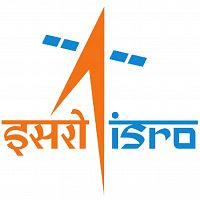›Remote Sensing and GIS Applications in Hydrological Modeling
About the Course
The advancement of earth observation (EO), open EO data, global positioning and navigation systems (GPS/GNSS), geographical information system (GIS) and geospatial data compatible hydrological models has opened a new avenues of research and operational applications of hydrological modeling in various issues and domains of water resources and hydrological investigations. With the advancements in geo-spatial data and technology, hydrological modeling has become an effective and essential tool for assessment, prediction and management of water resources, hydrological parameters and water movement/demand/use scenarios.
The hydrological models requires basic geo-referenced data such as, land use land cover (LULC), soil maps, and digital elevation models etc., for capturing the spatio-temporal variations of these thematic layers. Most of these datasets can be easily derived from remote sensing images and limited ground truth. The hydro-meteorological data such as precipitation, air and land surface temperature, solar radiation, evapotranspiration, soil moisture, river and lakes water levels, river discharge, and terrestrial water storage can be also be derived from remote sensing as well as from point based ground instruments. The GIS based platforms, both commercial and open source, provides an excellent interface for integration of all such geospatial and hydro-meteorological data to accomplish the hydrological modeling. Such modeling studies can be done at various spatio-temporal scales, ranging from city, watershed to basin level and at time scale of few hours used for urban and flood studies to daily time step based yearly long term climatic simulations.
In this course, detailed lecture and practical demos would be given on how to integrate geo-spatial data in various hydrological models. Practical applicability and basic knowledge of many popular and useful hydrological models such as; hydrological modeling system, soil and water assessment tool, variable infiltration capacity model, river analysis system and 1 & 2 dimensional hydrodynamic (1/2 HD) models, would be a part of this training. In addition, overview and sources of various satellite based hydrological parameters along with demo of field instruments required for hydrological ground data collection would also be imparted in this training. One day field work is also planned in nearby Asan and Aglar sub-watersheds of river Yamuna.
Objective of the Course/Workshop
The aim of the this course is to provide basic understanding of remote sensing, satellite image analysis, geographic information system (GIS) and Global Navigation Satellite System (GNSS) technologies and detailed exposure to applications of geospatial technology in hydrological modelling studies.
Eligibility
The training cum workshop is designed for water resources professionals, government officials, faculty, scientists, and researchers (JRF/SRF/RA) in working field of water resources, geospatial technologies and other related disciplines . Only Indian nationals can apply for this training cum workshop. Preference will be given to the employees of Govt. and public sector organizations. In case a large number of applications are received, the selection will be done based on the criteria decided by IIRS.
Track this event on your Apple calendar














 India
India